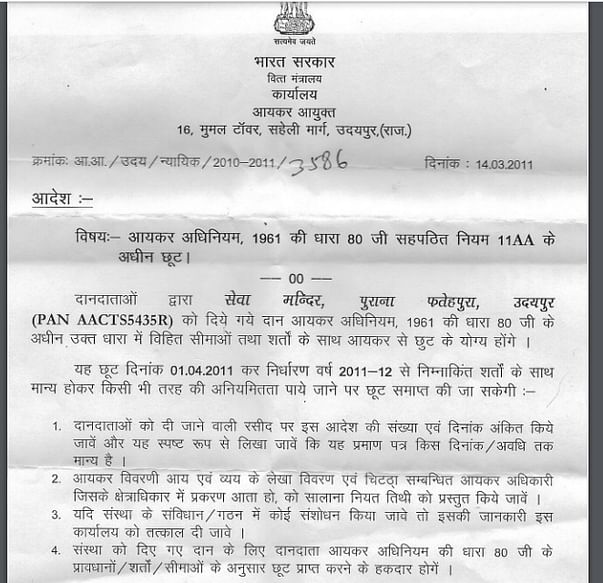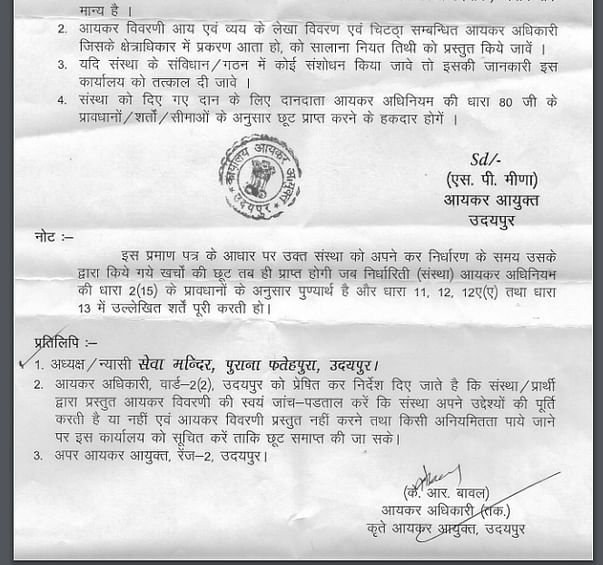If not you, then who?
The distress of rural migrants and marginal farmers is persistent and widespread. COVID-19 and the resultant lockdowns, which brought life and livelihoods to a grinding halt across India, have jolted this distress to public attention. The migrant workers were forced to use up their savings to return to their villages and now face the challenge of finding a new source of income which is sustainable as well as close to home.
Seva Mandir, a grassroots organisation with an extensive presence in rural Rajasthan for the past 50 years, seeks to meet this pressing need with a long-term livelihood program in Udaipur district. The program seeks to train and equip marginal farmers in horticulture, particularly vegetable farming, using sustainable and natural farming techniques. The program has been successfully completed for over 1000 farming families before the pandemic, earning a total of Rs. 68 lakhs (INR 6.8 million) additional income for the farmers. We now seek your support to extend the program to 100 more farming families with an urgency necessitated by the economic crisis and distress of rural migrants.
We request your kind support to continue and expand coverage to more farming families with an urgency necessitated by the economic crisis and distress of rural migrants. Our one-time costs average INR 3,000 per farming family, which includes the provision of farming tools, seeds, costs of training, extension services, market linkages, and other administrative costs. This program results in an additional income of INR 15,000-20,000 per family in a single season, which is a substantial increase of 40-50% in average income for these households. The Covid-19 pandemic has affected marginal farmers like Bhimraj and Hakari disproportionately. By supporting farming families and by regenerating the natural environment, we can ensure they can support themselves in the long-term. Any assistance from you, even INR 500, makes a huge difference to those earning typically Rs. 6000-7000 a month!
Seva Mandir, a grassroots organisation with an extensive presence in rural Rajasthan for the past 50 years, seeks to meet this pressing need with a long-term livelihood program in Udaipur district. The program seeks to train and equip marginal farmers in horticulture, particularly vegetable farming, using sustainable and natural farming techniques. The program has been successfully completed for over 1000 farming families before the pandemic, earning a total of Rs. 68 lakhs (INR 6.8 million) additional income for the farmers. We now seek your support to extend the program to 100 more farming families with an urgency necessitated by the economic crisis and distress of rural migrants.
We request your kind support to continue and expand coverage to more farming families with an urgency necessitated by the economic crisis and distress of rural migrants. Our one-time costs average INR 3,000 per farming family, which includes the provision of farming tools, seeds, costs of training, extension services, market linkages, and other administrative costs. This program results in an additional income of INR 15,000-20,000 per family in a single season, which is a substantial increase of 40-50% in average income for these households. The Covid-19 pandemic has affected marginal farmers like Bhimraj and Hakari disproportionately. By supporting farming families and by regenerating the natural environment, we can ensure they can support themselves in the long-term. Any assistance from you, even INR 500, makes a huge difference to those earning typically Rs. 6000-7000 a month!
Your support makes a world of difference to people like Hakari Devi, who lives with her husband and three children in a small, remote hamlet in one of the poorest areas of India and depended on her husband's and son's meager income from agriculture labor. Following training and support in floriculture under the project, she started growing and selling flowers and was able to earn an average of INR 9,000 (USD 130) per season, making a huge difference to her family’s income.
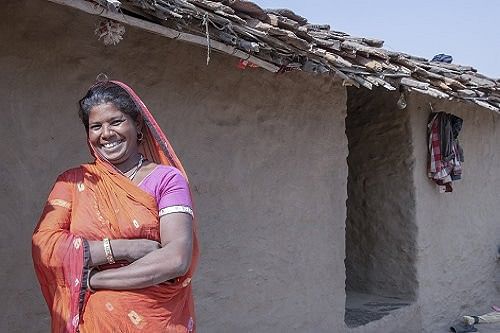
About Seva Mandir:
Founded in 1968, Seva Mandir is a grassroots NGO working in tribal blocks of Rajasthan for over 50 years. Among its various projects in rural and semi-urban communities over the years, Seva Mandir has successfully scaled up running early-education and child-care centers ('balwadis'), ensuring access to drinking water supply and sanitation in tribal villages, financial inclusion of women through SHGs, strong democratic institution-building at the village level, watershed and natural resource development, etc. Through extensive and continual engagement with these communities, it has reached a network of 500,000 people over 16,000 sq.km, whom it continues to serve with successive programs.
Background:
Udaipur district has one of the smallest average landholdings in Rajasthan and 60% of farmers in the district are marginal farmers, with less than 1-hectare cultivable land. Such small and fragmented landholdings make it difficult to harvest enough food grains for a family’s needs, let alone market them. These farmers have been largely dependent on PDS grains and income of migrant family members; 80-90% of families in several blocks of the district had a migrant member before the pandemic. During the national lockdowns, Seva Mandir provided the most vulnerable rural, tribal, and urban slum communities with vital relief packs to ensure they can survive this crisis. Going forward, Seva Mandir plans to extend comprehensive livelihood support to ensure that families have the ability and tools to protect their livelihoods and mitigate the effects of the pandemic.
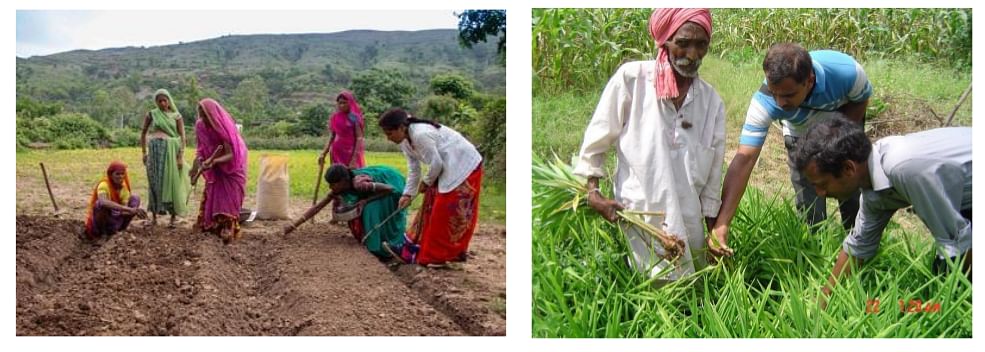
Rural Livelihood and Nutrition Programme:
We intend to help migrant and farming families in enhancing their income with self-sustaining and long-term solutions. One of our successful programs provides training, supplies, and extension services for vegetable farming to marginal farmers. In particular, we provide supplies such as seeds and farming tools for cultivation, technical and marketing training, and market linkages for the farmers. We provide community-based agri-extension service through trained agriculture workers called ‘Krishi-karyakartas,’ who act as facilitators to encourage farmers to adopt the best agricultural practices for vegetables, fruit trees, and livestock. Using the Farmer Field School approach, regular on-site demonstrations and training programs in production enhancement techniques are conducted (including preservation of seeds through community seed banks, preparation of nurseries and organic fertilizers, sowing methods, weeding and hoeing, harvesting, and storage). The vegetables chosen are in accordance of the season and micro-agro-climatic conditions of the region. In keeping with Seva Mandir's practice of encouraging co-ownership, farmers contribute other inputs such as bio-fertilizers and labor. The program has already been implemented for more than 1000 farmer families, resulting in 545 tonnes of vegetable produce and INR 68,05,794 (6.8 million) additional income in a single season!
Another critical role of the intervention in nutrition and food security, especially due to high rates of malnutrition and stunted growth of children in the area. The smallest marginal farmers, with a cultivable area of less than 0.1 hectares which is not sufficient for commercial cultivation and who have an infant in the family, are encouraged to grow a nutrition garden for their own consumption. This critical role in food security was underlined by Bhimraj, who was able to support his family with harvested vegetables as a beneficiary. He says ‘Help from Seva Mandir has been a big relief - especially in this crisis. My family did not have any income due to the lockdown, but we have enough vegetables to feed ourselves. We will be able to sell some in the local market once the lockdown ends.'
Founded in 1968, Seva Mandir is a grassroots NGO working in tribal blocks of Rajasthan for over 50 years. Among its various projects in rural and semi-urban communities over the years, Seva Mandir has successfully scaled up running early-education and child-care centers ('balwadis'), ensuring access to drinking water supply and sanitation in tribal villages, financial inclusion of women through SHGs, strong democratic institution-building at the village level, watershed and natural resource development, etc. Through extensive and continual engagement with these communities, it has reached a network of 500,000 people over 16,000 sq.km, whom it continues to serve with successive programs.
Background:
Udaipur district has one of the smallest average landholdings in Rajasthan and 60% of farmers in the district are marginal farmers, with less than 1-hectare cultivable land. Such small and fragmented landholdings make it difficult to harvest enough food grains for a family’s needs, let alone market them. These farmers have been largely dependent on PDS grains and income of migrant family members; 80-90% of families in several blocks of the district had a migrant member before the pandemic. During the national lockdowns, Seva Mandir provided the most vulnerable rural, tribal, and urban slum communities with vital relief packs to ensure they can survive this crisis. Going forward, Seva Mandir plans to extend comprehensive livelihood support to ensure that families have the ability and tools to protect their livelihoods and mitigate the effects of the pandemic.

Rural Livelihood and Nutrition Programme:
We intend to help migrant and farming families in enhancing their income with self-sustaining and long-term solutions. One of our successful programs provides training, supplies, and extension services for vegetable farming to marginal farmers. In particular, we provide supplies such as seeds and farming tools for cultivation, technical and marketing training, and market linkages for the farmers. We provide community-based agri-extension service through trained agriculture workers called ‘Krishi-karyakartas,’ who act as facilitators to encourage farmers to adopt the best agricultural practices for vegetables, fruit trees, and livestock. Using the Farmer Field School approach, regular on-site demonstrations and training programs in production enhancement techniques are conducted (including preservation of seeds through community seed banks, preparation of nurseries and organic fertilizers, sowing methods, weeding and hoeing, harvesting, and storage). The vegetables chosen are in accordance of the season and micro-agro-climatic conditions of the region. In keeping with Seva Mandir's practice of encouraging co-ownership, farmers contribute other inputs such as bio-fertilizers and labor. The program has already been implemented for more than 1000 farmer families, resulting in 545 tonnes of vegetable produce and INR 68,05,794 (6.8 million) additional income in a single season!
Another critical role of the intervention in nutrition and food security, especially due to high rates of malnutrition and stunted growth of children in the area. The smallest marginal farmers, with a cultivable area of less than 0.1 hectares which is not sufficient for commercial cultivation and who have an infant in the family, are encouraged to grow a nutrition garden for their own consumption. This critical role in food security was underlined by Bhimraj, who was able to support his family with harvested vegetables as a beneficiary. He says ‘Help from Seva Mandir has been a big relief - especially in this crisis. My family did not have any income due to the lockdown, but we have enough vegetables to feed ourselves. We will be able to sell some in the local market once the lockdown ends.'
For more on Seva Mandir's work, please refer to the official website.
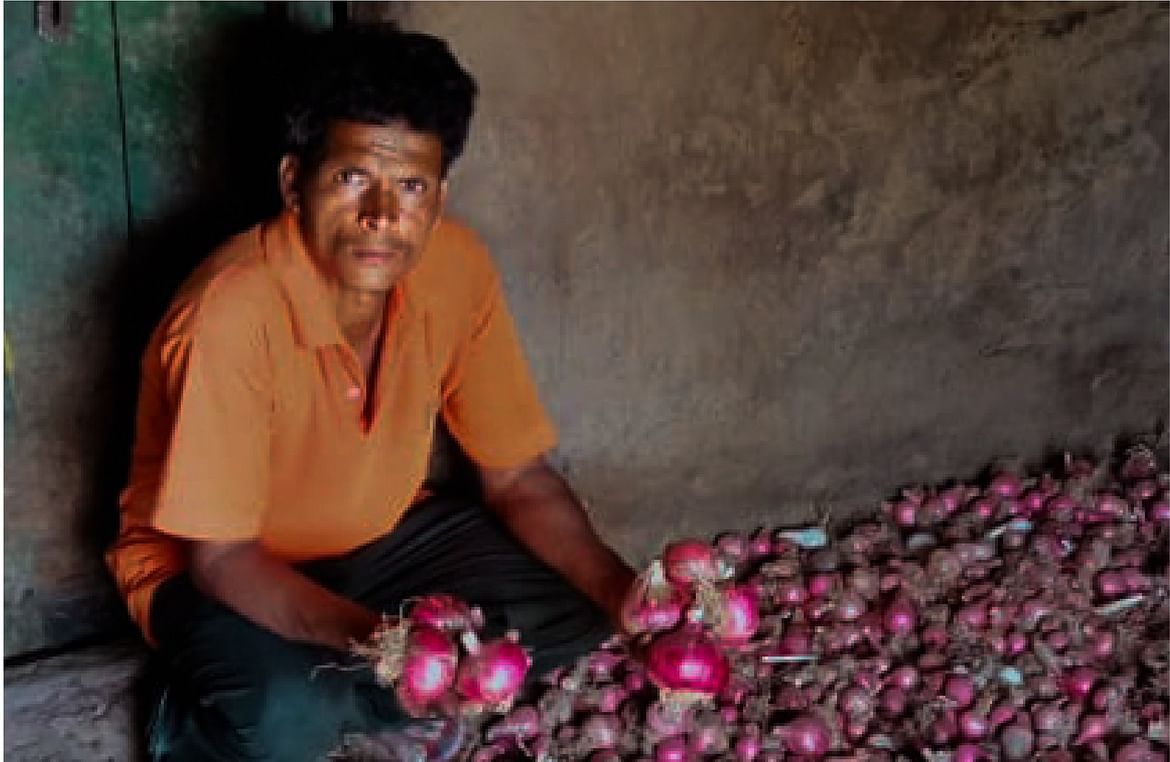
We request your kind support to continue and expand the coverage of the programme. Our one-time costs average INR 3,000 per farming family, which include provision of farming tools, seeds, costs of training, extension services, market linkages and other administrative costs. This programme results in additional income of INR 15,000-20,000 per family in a single season, which is a substantial increase of 40-50% in average income for these households . The Covid-19 pandemic has affected marginal farmers like Bhimraj and their families disproportionately. By supporting farming families and by regenerating the natural environment, we can ensure they have the ability to support themselves in the long-term. Any assistance from you, even an amount of INR 500, will go a long way for the cause.
We request you to kindly donate a day's salary, or any amount which is comfortable for you, to help a family to provide for themselves!
Note: Seva Mandir is eligible to accept foreign contributions with the registration number 125690002.
Seva Mandir is registered under the Rajasthan Society Act with the registration number 149/1967-68. PAN Number: AACTS5435R
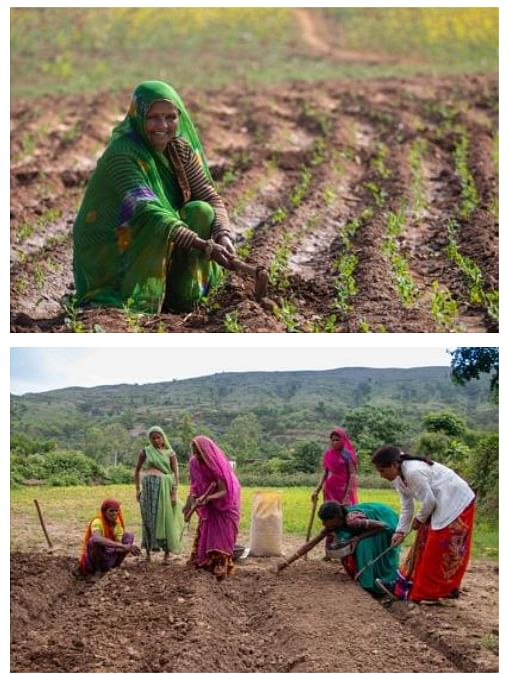
Note: All your contributions to Seva Mandir are eligible for tax-exemption under Section 80-G.
Seva Mandir's 80G tax-exemption certificate and PAN no::
